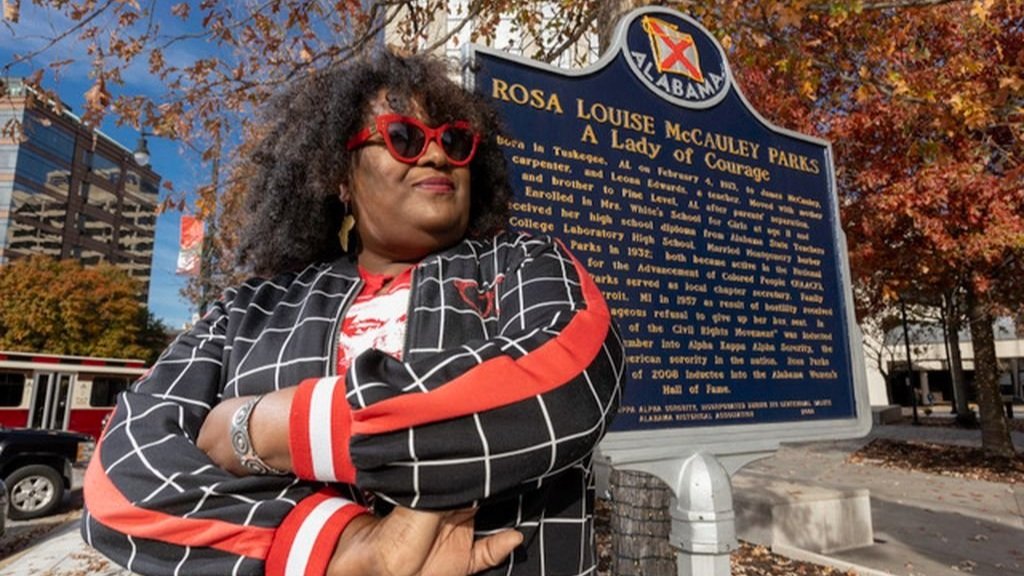Friday Faves - Your Weekly Strong Towns Roundup
John, Rachel, and Chuck posing for a photo together in Kansas!
Last week, Chuck was in Kansas (along with Strong Towns staffers Rachel Quednau and John Pattison) for several events in Hutchinson and Wichita. The organizers of the Rethinking Wichita conference produced some videos of the sessions, one of which you can view here. If you’d like to bring The Confessions Tour to your place, let us know!
Also, some exciting news: In 2022, Strong Towns will be partnering with Urban3, the University of North Carolina Asheville, and the Racial Justice Coalition of Asheville to study inequities in the property tax assessment process in Western North Carolina. This work comes out of preliminary research conducted by our friends at Urban3 and is now being funded with an $850,000 grant from the Dogwood Health Trust. Expect more updates in a few months.
Comment of the Week:
This comment came from the article “Our Self-Imposed Scarcity of Nice Places.” Check it out here to join in on the discussion!
Here’s what Strong Towns staff were up to this week:
(Source: Unsplash.)
John: This Washington Post article is a useful summary of five pervasive myths about highways, including the myth that widening highways can fix congestion, the problem with putting all the blame for crashes on drivers, and even the myth that the reason we have so many cars is because “Americans love cars.” Myths like these are pervasive. They are also expensive—in dollars, in time, and in quality of life. If you’re looking, as I always am, for articles that make key Strong Towns principles accessible for people who aren’t immersed in this stuff every day, this article is a good one.
(Source: Unsplash.)
Chuck: It’s predictable that the Infrastructure Cult would respond to supply chain breakdowns by calling for more spending on infrastructure at ports. Abby Kinney and I talked about this on Upzoned, along with why that is the wrong solution for an incorrect diagnosis. The only solution to supply chain problems is to begin the process of localizing the stuff our economy could and should naturally produce locally—stuff like food, which is so obvious once you get outside the Infrastructure Cult bubble. This article on Medium gives additional weight to the insight that more money and more infrastructure spending is only going to bolster a broken system and crowd out alternatives we need to get going on.
(Source: Unsplash.)
Rachel: I love coming across a Strong Towns advocate applying the values and approach of this movement in their city. This week, it was an op-ed in the Forest Grove News Times by Aaron Wolf, responding to a road tolling proposal in his community and particularly, a group of people who have been advocating against tolling. Wolf finds his way toward empathy toward these folks and ultimately concludes that, toll or no toll, we have to solve our transportation problems at their root. He writes: “The only way to actually reduce congestion is to get away from our car-dependent, daily-commute way of life. We need integrated communities where people can live near work, groceries, schools and recreation. Put simply, we need Strong Towns (as in the nonprofit movement at strongtowns.org). I wish we could reframe the whole conversation around that vision. Strong Towns is about local control, iterative development, conservative fiscal responsibility, human-scale and resilience.” Amen!
Lauren: If you haven’t already, make sure to catch this great discussion between Chuck Marohn and Verdunity’s Kevin Shepherd and Marshall Hines. They reminisce about their time as students of engineering and planning, share the expectations they had about their path, and process together how those expectations were upended by the reality of the work. A vital question permeates the conversation: What do engineers need, to do to do right by the people they serve?
Michelle Browder, who runs a “truth and reconciliation” tour of Montgomery, AL. (Source: Boston Globe.)
Shina: I've never been a fan of tours; everyone who's been on vacation with me knows that I prefer to do solo exploration whenever possible. Part of this is my pervasive introversion. A much bigger part is that I don't want to be told what to think, or what parts of a story to think about. (I won't even read the descriptions on museum plaques, that's how obnoxious I am about this.) Still, I have great respect for the tradition of oral storytelling, and perhaps tour guides are one sort of continuation of that tradition. But, again, how do we decide which parts of a story to tell? According to this article from the Boston Globe, that question has led to the creation of tour companies across the U.S. that focus on narratives often excluded in standard bus, museum, or walking tours. Even as a certified tour-hater, I'm glad this is part of the larger conversation Americans are having about how to approach our nation's history. While there may be no perfect means of communicating the past, in any format, at least we can have a variety of options.
—
Finally, from all of us, a warm welcome to the newest members of the Strong Towns movement: Garry & Mitzi Barker, Rock Bell, Justin Brolley, Lisette Cheresson, Karthik Deepak Natraj, Sukrit Ganesh, Patrick Grace, Janette Lutz, Angus Mcmaster, Stefan Sauer, Maximum Steinhauer, and Beverly Tyre Flanagan.
Your support helps us provide tools, resources, and community to people who are building strong towns across the country.
What stories got you thinking this week? Please share them in the comments!







